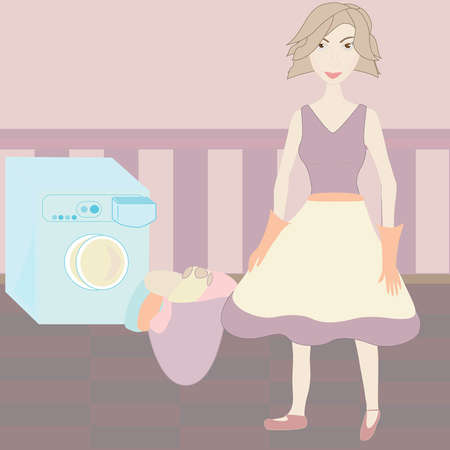Understanding Infant Formula Options in the UK
When breastfeeding isn’t possible, choosing the right infant formula can feel overwhelming for many UK parents. The good news is that there are several carefully regulated options available, each designed to meet your baby’s nutritional needs at different stages. In the UK, all formulas must comply with strict health guidelines set by the Department of Health and Social Care, ensuring safety and quality for your little one.
First Infant Milk
This is usually the first choice for newborns who aren’t breastfed. First infant milk, also called “stage 1 formula,” is suitable from birth and is made from cow’s milk proteins modified to be gentle on tiny tummies. It’s nutritionally complete for babies up to six months old and often recommended by health visitors and midwives as the go-to option if breastfeeding isn’t possible.
Follow-On Formula
From around six months, some families choose to move on to follow-on formula (sometimes labelled “stage 2”). While it’s specifically tailored for older babies who are starting solids, it’s not necessary if your baby is thriving on first infant milk. The NHS advises that follow-on formula should never be given before six months old. Always check with your health visitor if you’re considering switching.
Specialist Formulas
The UK market also offers specialist formulas for specific needs. These include lactose-free formulas for babies with lactose intolerance, hydrolysed protein formulas for those with cow’s milk allergy, and anti-reflux or comfort milks for digestive issues like colic or reflux. Specialist milks should only be used under guidance from a GP or dietitian.
Compliance with UK Health Guidelines
All baby formula sold in the UK must meet rigorous standards covering everything from nutritional content to labelling and advertising. This means you can have peace of mind knowing that whatever type you choose—whether standard or specialist—it has been approved as safe and appropriate for infant feeding here in Britain.
Helping You Make an Informed Choice
Understanding these options is the first step in supporting your baby’s growth and development when breastfeeding isn’t possible. Remember, you’re not alone on this journey—UK health professionals are always ready to help guide you through your choices in a way that suits your family best.
How to Choose the Right Formula for Your Baby
Selecting the best formula for your baby can feel overwhelming, especially with so many choices available on UK shelves. It’s important to approach this decision practically, considering both your baby’s unique needs and the guidance of local health professionals.
Consider Your Baby’s Individual Needs
Every baby is different—some may have allergies, intolerances, or specific dietary requirements. Begin by observing your baby’s feeding habits and any signs of discomfort, such as excessive wind, colic, or skin rashes. If you’re unsure, keep a simple diary of symptoms to discuss with your health visitor or GP.
Consult with Your Health Visitor or GP
In the UK, health visitors and GPs are invaluable resources for new parents. Before making any formula switch or starting formula feeding, it’s wise to consult them. They can recommend suitable brands based on NHS guidelines and help monitor your baby’s growth and development.
Understanding Ingredients and Labelling on UK-Sold Formulas
UK formulas must meet strict regulations regarding nutritional content. However, there are still differences in ingredients that may matter for your family’s preferences or your child’s needs. Here’s a quick comparison to help you decode common terms:
| Type of Formula | Main Features | Best For |
|---|---|---|
| First Infant Milk (Whey-Based) | Suits newborns; closest to breast milk; suitable from birth | Most babies unless otherwise advised |
| Follow-On Milk | For babies over 6 months; higher iron content | Babies ready for weaning alongside solid foods |
| Anti-Reflux/Comfort Formula | Thicker consistency; helps reduce reflux symptoms | Babies with frequent posseting or mild reflux |
| Lactose-Free Formula | No lactose; uses alternative sugars | Babies diagnosed with lactose intolerance |
| Soya-Based Formula* | Dairy-free alternative; not usually first choice in the UK | Only if recommended by a doctor due to allergies or intolerances |
*Soya-based formulas should only be used under medical supervision due to phytoestrogens and potential allergens.
Key Points to Check on UK Formula Labels:
- Nutritional Content: Look for compliance with EU/UK standards.
- Additives: Watch out for added sugars, palm oil, or fish oils if you have specific dietary restrictions.
- Preparation Instructions: Always follow the label for safe preparation and storage.
- Ages Indicated: Only use formula appropriate for your babys age group.
This practical approach ensures you’re choosing a formula tailored to your little one while staying informed about what goes into their bottle. Don’t hesitate to reach out for support—navigating these choices is an important part of your parenting journey in the UK.

3. Navigating the Supermarket and Pharmacy Aisles
Finding the right infant formula for your baby in the UK can feel overwhelming, especially with so many brands and options lining the supermarket and pharmacy shelves. Here are some practical tips to help you confidently navigate your local shops or online stores.
Tips for Choosing Formula in British Stores
Start by checking the baby aisle in large supermarkets like Tesco, Sainsbury’s, Asda, or Morrisons, as well as high street pharmacies such as Boots and Superdrug. Look for formula that is clearly labelled “first infant milk” if you’re shopping for a newborn. Don’t hesitate to ask a member of staff for help—they’re used to supporting parents who are new to formula feeding.
Understanding Popular UK Brand Names
The most commonly found brands in the UK include Aptamil, Cow & Gate, SMA Pro, Kendamil, and HiPP Organic. These brands all meet strict UK regulations to ensure safety and nutrition. Some families prefer organic formulas like HiPP or Kendamil, while others choose based on recommendations from their health visitor or GP. It’s worth noting that UK formulas may have slightly different names or ingredients compared to those found elsewhere—so always double-check labels if you’re used to international brands.
What to Look for When Shopping In-Store and Online
When buying formula, look for sealed packaging with clear expiry dates. If your baby has specific dietary needs (such as allergies or reflux), check for specialty formulas which are often located on higher shelves or behind the pharmacy counter—sometimes you’ll need advice from your health visitor before purchase. Online retailers like Ocado, Amazon UK, and the official websites of major supermarkets offer home delivery, but always buy from reputable sources to avoid counterfeit products. Remember: it’s best to stick with one brand unless your health professional recommends a change, as frequent switching can upset your baby’s tummy.
Shopping for formula in the UK is a journey that gets easier with time and experience. With these tips and a little patience, youll soon become confident at picking out what’s best for your little one—whether you’re browsing the aisles together or clicking through an online shop during nap time!
4. Mixing and Storing Formula Safely
Ensuring your baby’s formula is prepared and stored safely is a top priority for UK families, especially when juggling busy routines. Following NHS guidelines helps protect your little one from harmful bacteria and ensures they receive all the nutrients they need.
Preparation: Step-by-Step Guidance
Always wash your hands thoroughly before preparing formula. Use freshly boiled tap water (not bottled or artificially softened water) cooled for no more than 30 minutes, so it remains at least 70°C to kill bacteria. Carefully measure the correct amount of water and powder as indicated on the packaging—never guess the proportions!
Sterilising Bottles and Equipment
Bottle sterilisation is essential in preventing infections. Here’s a quick comparison of popular sterilising methods in UK households:
| Sterilising Method | How To Use | Time Needed |
|---|---|---|
| Steam Steriliser | Place bottles/teats in device, add water, run cycle | 5–10 minutes |
| Boiling Water | Submerge bottles/teats in rolling boil | 10 minutes |
| Chemical Sterilising Solution | Soak bottles/teats as per instructions | Usually 15–30 minutes |
Storing Formula: What Every UK Parent Should Know
The NHS recommends making up feeds fresh for each feed, but if you need to prepare in advance (for nursery runs or outings), cool the made-up formula quickly under cold running water and store it at the back of the fridge (never the door) at 5°C or below. Use within 24 hours and always reheat only once—discard any leftover milk.
Quick Tips for Busy Families:
- Pre-measure powder into clean, dry containers for quick mixing on-the-go.
- If you use ready-to-feed formula, keep unopened cartons at room temperature and refrigerate once opened (use within 24 hours).
- Label bottles with date/time prepared to avoid confusion during hectic days.
- Avoid microwaving bottles to heat formula—hot spots can burn your baby’s mouth; instead, warm bottles by standing them in hot water.
- If in doubt, throw it out—better safe than sorry!
By sticking to these practical steps, you’ll keep feeding time safe and stress-free for both you and your baby while fitting neatly into daily UK family life.
5. Supporting Your Baby’s Health and Wellbeing
Spotting Signs of Formula Intolerance
Every baby is unique, and sometimes, little ones may show signs that a particular formula doesn’t quite agree with them. Common indicators include excessive wind, colic, diarrhoea, constipation, skin rashes, or frequent vomiting. If you notice your baby seems unusually unsettled or uncomfortable after feeds, keep a diary of their symptoms and discuss it with your health visitor or GP. In the UK, there are specialist formulas available for babies with allergies or intolerances, but these should only be used on the advice of a healthcare professional.
When to Seek Support from UK Healthcare Professionals
If you’re concerned about your baby’s feeding, growth, or general wellbeing, don’t hesitate to reach out to your local GP or health visitor. The NHS provides excellent support for families navigating formula feeding. Whether it’s questions about weight gain, persistent feeding difficulties, or possible allergic reactions, healthcare professionals are there to help guide you through every step. Remember: you’re never alone in this journey, and seeking advice early can make all the difference to your child’s health.
Bonding During Bottle Feeding
Just because you’re bottle feeding doesn’t mean you miss out on special bonding moments with your baby. Hold your little one close, maintain gentle eye contact, and talk softly during feeds—these simple actions help build a strong emotional connection. Try swapping who gives the bottle between family members so everyone gets a turn to bond. In true British style, make feeding times calm and cosy; perhaps pop on some soothing music or enjoy a quiet moment together before the next adventure. Whether using breast milk or formula, it’s these loving interactions that nurture your baby’s wellbeing most of all.
6. Connecting With Local Resources and Support
When navigating formula choices in the UK, you don’t have to go it alone. There’s a wonderful network of resources and communities ready to support you on your feeding journey.
Parent Groups: Sharing Experiences and Encouragement
From NCT coffee mornings to local baby groups at your children’s centre, parent groups offer a safe space to ask questions, share tips, and find reassurance from others who understand what you’re going through. These groups often welcome all feeding choices and can be a great way to connect with other families making similar decisions.
NHS Resources: Trusted Guidance at Your Fingertips
The NHS provides up-to-date, evidence-based advice on formula feeding. The official NHS website has dedicated sections about choosing formula, preparing bottles safely, and understanding your baby’s needs. You can also speak directly with your health visitor or GP for tailored guidance—they’re there to help, not judge.
Community Midwives: Personalised Support in Your Area
Your community midwife is another invaluable resource, especially in those early days. Midwives can advise on different formula types available in the UK, demonstrate how to make up feeds safely, and answer any concerns you might have as you adjust to a new routine.
Online Forums: Advice Around the Clock
If you prefer seeking advice from home, UK-based online forums like Mumsnet and Netmums provide lively discussion boards where parents share real-life experiences with different formulas and brands. These communities are active day and night—perfect for those late-night feeds when you need a bit of encouragement or quick practical advice.
By reaching out to these local resources and supportive communities, UK families can feel empowered and confident as they navigate the world of formula feeding together.


